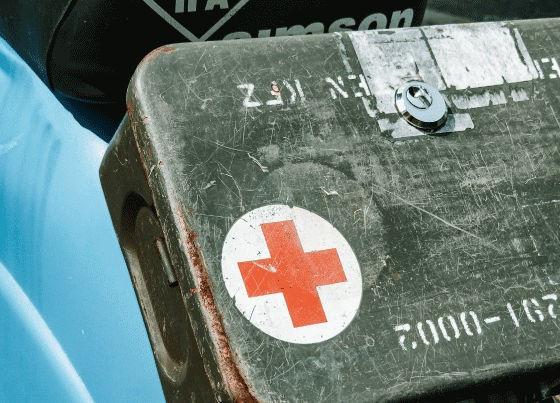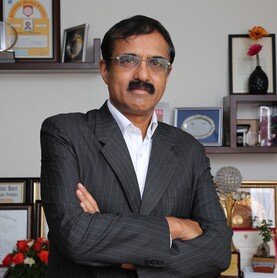Healthcare Digital Transformation
Digital Transformation in Healthcare
The ongoing digital transformation in healthcare, disruptive technologies like telemedicine, AI, and IoT are leding revolutionary changes. Balancing the imperative vision of a tech-led future with a nuanced integration of technology and healthcare is crucial for sustainable progress.
In recent times, we have seen tons of media literature describing the immense potential of technology in the domain of healthcare. In the context of digital transformation, we see emphatic opinion pieces, posts, and predictions on the disruptive trends in healthcare – from telemedicine and virtual consulting to Big Data, Internet of Things, Artificial Intelligence, Virtual Reality, and Augmented Reality.
Envisioning the future of technology-led healthcare is imperative no doubt, but it is also equally important to put both technology and healthcare in perspective before exploring the full possibilities of tech-powered healthcare.
Domain Expertise and Patient-Centric Healthcare
The mere abundance of technologies is not a silver bullet, nor is its perfunctory application. This is not to underestimate the sunrise possibilities of digital transformation in healthcare.
We need a patient-centric approach – from pre-admission to post-discharge – aimed at enhancing outcomes, lowering costs, and better resource management based on the risk and severity of the disease.
The domain of healthcare revolves around the patient, so unless technology serves the larger cause of the patient, it does not serve the purpose in its truest sense, despite the degree of disruption or advancement inherent in it. A classic case in point is the debacle of ‘Haven’, the failed joint venture between Amazon, Berkshire Hathaway, and JP Morgan that sought to revolutionise healthcare.
Healthcare is a very niche domain that cannot be fathomed in toto by tech experts. It requires healthcare specialists with in-depth knowledge and experience for technology to bring about measurable and sustainable gains.
Intelligent Efficiency
Intelligent efficiency has a pivotal role to play, in the context of healthcare, irrespective of the technology employed, towards enhancing system performance and catering to the needs of providers and patients alike.
The emerging paradigm of Intelligent Efficiency focuses on bringing about energy savings and boosting performance through the deployment of affordable next-gen technologies. Now, the adjective ‘intelligent’ before the noun ‘efficiency’ does not imply that efficiency is otherwise dumb. Intelligence implies that efficiency is better attuned and adapted toward achieving the larger goals. This term does not undermine the value of human insight and intervention, but rather puts a premium on it to help design systems that are more collaborative and cohesive and not just technology-rich.
Intelligent Efficiency has been the driving force of HCG’s journey over the years, focused on improving every component and aspect of care within the system to make it more accessible and affordable. It brings about a smart orchestration, where the best human minds make the most intelligent use of technology to steer data-driven decisions.
Personalised Medicine for Preventive Care
Particularly in the field of cancer care, technology is helping us draw enlightening patterns out of biological and clinical data to help early interventions in certain forms of cancers – both preventive and therapeutic – that can in turn be tailored to individual patient needs. Efforts in this direction are ripe with many interesting outcomes like biomarkers, which in turn will pave the way for personalised medicine.
At HCG, we study a wide variety of patient data; this includes personal and family information, genetic profiles, history of disease and disorder, as also statistical outliers (implying unusual outcomes that go against the prevalent trend). Augmented reality initiatives like HoloLens are helping seamlessly blend with and also simulate the real world using multiple sensors, advanced optics, and holographic processing.
Importance of Clean Data
The Future Health Index 2021 report found data management and lack of interoperability and data standards as the two main impediments to the success and sustainability of virtual care. Our systems have tons of raw data which needs to be curated for making it accurate and relevant for decision making. Unless we address the concerns surrounding the quality and integrity of data, we won’t achieve big gains from big data. If data is made clean and actionable, digital health can make the most of analytical techniques to analyse huge datasets, which will in turn improve patient care outcomes and enhance business processes.
Fool-proof data curation will make value-added analytics reliable, thereby improving the velocity, volume, veracity, variety, variability, visualisation, and value of big data. Clean data will play a pivotal role in digital transformation. Genomics is one key area that will thrive on curated data to help detect and treat many lifestyle diseases at an early stage. This will be one of the greatest value-adds for the patient: the end-user and the beneficiary of the digital transformation in healthcare.
In the swiftly evolving healthcare sector, digital transformation is imperative, driven by rapid AI and data advancements. Amidst these opportunities, healthcare leaders face the critical challenge of identifying truly impactful digital solutions. The ‘Accelerating Digital Transformation in Healthcare’ programme jointly offered by ISB Executive Education and ISB Max Institute of Healthcare Management is designed for healthcare leaders who would like to leverage digital tech to create a renewed value proposition for their service offering, keeping patient care at its core.
ISB Executive Education offers a diverse range of short programmes for CXOs to strengthen their management and leadership acumen.




